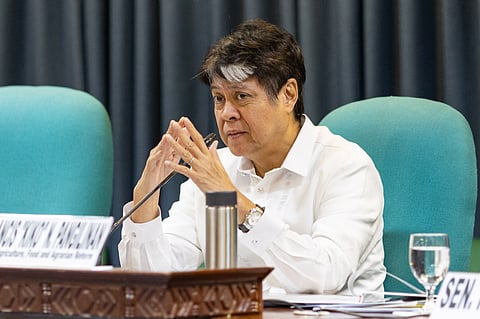
- NEWS
- the EDIT
- COMMENTARY
- BUSINESS
- LIFE
- SHOW
- ACTION
- GLOBAL GOALS
- SNAPS
- DYARYO TIRADA
- MORE

Senator Francis “Kiko” Pangilinan has pushed for a proper mechanism to define rice profiteering and its impact on farmers and local rice production.
Speaking during the second public hearing of the Committee on Agriculture, Food, and Agrarian Reform held jointly with the Committees on Finance and Ways and Means, Pangilinan inquired about the clear and proper definition of rice profiteering to be able to effectively go after abusive rice traders and hoarders.
“In other words, if we want to protect and give our beneficiaries a fighting chance, how can we determine that? What exactly is profiteering in that matter?” he asked.
The senator led the hearing on Wednesday on amendments to the Rice Tariffication Law (RTL).
Pangilinan’s remarks came amid reports that traders have been low-balling rice farmers by buying their produce at less than the cost of production.
The senator, who chairs the Senate Committee on Agriculture, asked how the law can establish that buying palay (unmilled rice) from farmers at P5 per kilo and then selling it for P40 to P45 per kilo in the market is profiteering.
Traders are reportedly buying palay from local farmers at P5 to P10 per kilo despite farmers spending P14 to P17 per kilo to grow it.
“We are complaining that it is too cheap. P5 a kilo is a loss. Why P5? Because it makes a lot of money, etc. Well, it’s all speculative. There is no science to determine how much you really earn when you buy it for P5 a kilo,” Pangilinan pointed out.
He explained that a proper mechanism for defining rice profiteering and its inclusion in the RTL amendment would help protect farmers and their livelihood.
One of Pangilinan’s first moves in his return to the Senate was to file a resolution seeking an investigation into the RTL and any amendments that must be made after he said it failed to meet its two objectives: lowering the price of rice and uplifting the lives of farmers.
